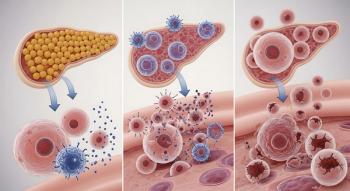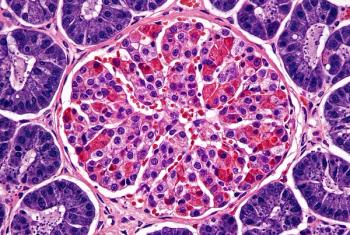
Research Highlights Role of Gut Microbiome and Diabetes Risk
The results of a new study in mice show that early exposure to certain bacteria and fungus can give the immune system a boost and reduce the risk of type 1 diabetes.
The microbiome is the bacteria, fungi, viruses and other microorganisms that live in and on our bodies, and researchers are starting to understand how they can impact our health. Although the overgrowth of bacteria and viruses can lead to infection, the interaction of many of these organisms can have a positive impact on health, especially gut health and the immune system.
New research in mice has found that changes in the microbiome can impact insulin-producing cells, leading to long-term changes and increased risk for type 1 diabetes. The research was
June Round, Ph.D., professor of pathology at University of Utah Health, and her colleagues found that mice exposed to broad-spectrum antibiotics in early life have worse metabolic health in the long term. These mice developed fewer beta cells, which produce insulin in the pancreas. As adults, these mice had higher levels of blood sugar and lower levels of insulin.
The pancreas is not in contact with gut bacteria, but the organisms found in the gut can influence the pancreas and impact the immune system, according to
Round and her colleagues wanted to look at the impact of the microbiome on islet macrophages and insulin-producing beta cells in young mice. Most of what is known about islet macrophages is from studying adult animals.
Round’s lab at the University of Utah Health focuses on research of the microbiota and its impact on five main areas: host immunity, fungal effects on intestinal disease, neurological disorders, cancer and bacteriophage effects on the gut.
In the new study, Round and her colleagues disrupted the microbiome in young mice with a broad-spectrum antibiotic “cocktail” of gentamycin, neomycin, ampicillin, and erythromycin.
Round’s research found that in mice who were not treated with the antibiotics, beta-cell development increased. But in mice treated with the antibiotics, there was no increase in beta-cell development, which researchers said suggested that “postnatal beta-cell expansion is dependent on microbial colonization.”
Young mice, they found, exposed to the antibiotics had a lasting impact on beta cell mass even as adult mice after the antibiotics had been stopped. “This, to me, was shocking and a bit scary,” Round said in a University of Utah news release. “It showed how important the microbiota is during this very short early period of development.”
Round and her colleagues discovered several specific microbes that increased the amount of insulin-producing tissue and the level of insulin in the blood. One of these is a fungus called Candida dubliniensis, which isn’t found in healthy human adults, but may be more common in infants.
Exposure to C. dubliniensis could help a damaged pancreas recover, the researchers found. When researchers introduced the fungus to adult mice whose insulin-producing cells had been killed off, the insulin-producing cells regenerated and metabolic function improved.
Newsletter
Get the latest industry news, event updates, and more from Managed healthcare Executive.























